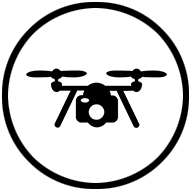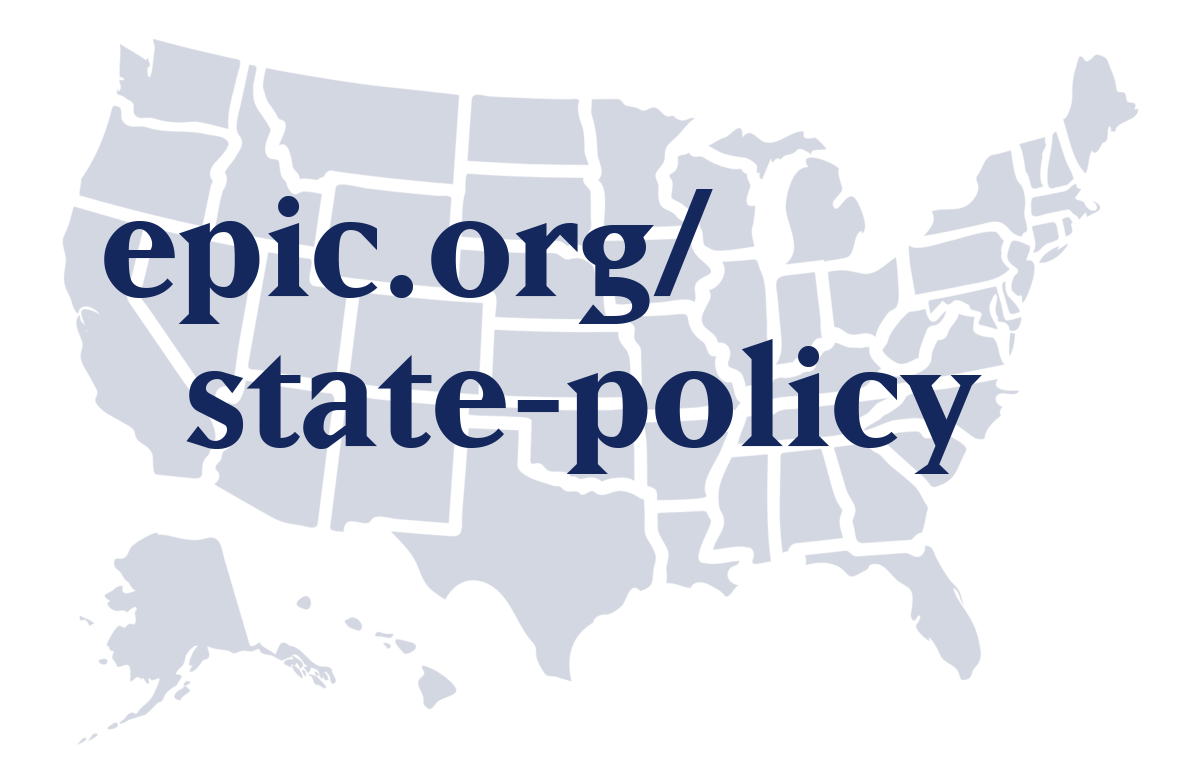State Drone and UAV Policy
Introduction
 Aerial surveillance of drones within the United States raises significant privacy issues. These vehicles can gather detailed information on individuals.
Aerial surveillance of drones within the United States raises significant privacy issues. These vehicles can gather detailed information on individuals.
Exemplary Laws
Oregon Drone bill
In July 2013, Oregon enacted legislation to limit the use of drones by law enforcement to prevent mass and/or suspicionless surveillance and provides a civil action against drone operators who fly lower than 400 feet over private property. The bill does the following:
- Prohibits the use of drones by law enforcement except in the following circumstances:
- A warrant specifically authorizing the use of a drone;
- Exigent circumstances that make it unreasonable for law enforcement to first get a warrant;
- Consent;
- Search and rescue;
- Assisting an individual in an emergency if imminent threat to life or safety of an individual and the law enforcement agency files, within 48 hours, a sworn statement with the court detailing the nature of the emergency and the need to use a drone.
- State of emergency declared by governor if used for:
- Preserving public safety;
- Protecting property; or
- Conducting surveillance for the assessment of weather/environmental damage.
- Reconstruction of a crime scene; or
- Training.
- Information gathered during drone training is not admissible in court and is forbidden for being used as reasonable suspicion or probable cause that an offense has been committed.
- Makes clear that information gathered via drones in violation of this act will not be admissible in court and is forbidden for being used as reasonable suspicion or probable cause that an offense has been committed.
- Law enforcement must register their drones with the Oregon Department of Aviation and provide annual report detailing:
- The frequency of use during the past year; and
- The purpose of the use during the past year.
- Provides a civil remedy against drone operators that fly lower than 400 feet over private property.
What's Missing from Oregon's Law?
A shortcoming of the Oregon law, and many others, is the lack of privacy protections for the commercial use of drones. Effective drone privacy legislation should include restrictions on the collection, use, and retention of personal information. There should also be reporting requirements for commercial drone operators, including publication of reports on data collection. And all drones should routinely broadcast GPS information, including latitude, longitude, and altitude, course, speed, and battery level.
Maine: Private Right of Action
Maine prohibits drones from being equipped with facial recognition technology except in limited circumstances and requires a warrant for law enforcement use. Unlike many state bills, Maine’s law provides citizens with a private right of action against law enforcement for violations. Individuals may sue for equitable relief or for up to $5,000 per violation of the law.Additional Resources
- EPIC: Domestic Unmanned Aerial Vehicles (UAVs) and Drones
- EPIC: Comments urging the Federal Aviation Administration to propose drone privacy safeguards. (April 25, 2015).
- EPIC's statement on proposed legislation in Maryland limiting drone surveillance. (March 17, 2015)
- EPIC: State v. Davis. EPIC Senior Counsel Alan Butler argued before the New Mexico Supreme Court in a case concerning police surveillance. EPIC filed an amicus curiae brief in State v. Davis warning of the risk of widespread drone surveillance and arguing that aerial surveillance within the airspace surrounding an individual's home is a search under the Fourth Amendment.
- National Conference of State Legislatures (NCSL): Current Unmanned Aircraft State Law Landscape.
- CPO Magazine, Eye in the Sky—Drone Surveillance and Privacy (Aug. 6, 2018)
- PBS, How Drones Raised Privacy Concerns Across Cyberspace (July 1, 2016)
- Congressional Research Service: Domestic Drones and Privacy: A Primer (March 30, 2015)
- Brookings Institute, Drones and Aerial Surveillance: Considerations for Legislatures (Nov. 2014)
- United States Senate Committee on the Judiciary, The Future of Drones in America: Law Enforcement and Privacy Considerations (March 20, 2013)
- Rutherford Institute: Letter to Congress on Model State Legislation to Protect Privacy in the Age of Drone Technology (Oct. 22, 2012)
Share this page:
Subscribe to the EPIC Alert
The EPIC Alert is a biweekly newsletter highlighting emerging privacy issues.








